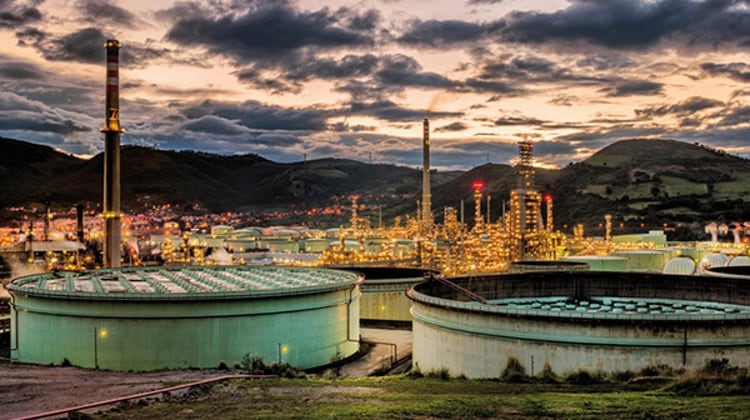The Diplomat
Repsol’s decision to put on “stand by” the investment process in some of its industrial projects in different areas of Spanish territory until it has stable and sufficiently attractive conditions to guarantee profitability, leaves nearby investments in the air. to around 1,500 million euros, according to industry estimates.
A possible extension of the special tax for energy companies and banks – currently in force for this year and 2024 – included in the agreement reached by PSOE and Sumar for a possible coalition government provoked a warning last week from the CEO of Repsol, Josu Jon. Imaz, and on Monday the president of Petronor and advisor to the oil company, Emiliano López Atxurra, pointed out that the viability of the company’s projects under these conditions will be studied.
Specifically, according to Europa Press, projects in the group’s portfolio in the Basque Country, Tarragona and Cartagena are now up in the air.
Thus, Tarragona hosts two Repsol projects that could be paralyzed: an electrolyzer of up to 150 Megawatts (the largest in all of Spain) and an Ecoplant, which, together, would add up to an investment of more than 1,000 million euros.
In the Catalan city, Repsol has a ‘megaproject’, in alliance with Enerkem and Agbar, to build a waste recovery plant worth 750 million euros. The project, announced in 2021, would allow the plant to have the capacity to convert approximately 400,000 tons of non-recyclable municipal solid waste into approximately 220,000 tons per year of methanol that will be transformed into renewable plastics or advanced biofuels.
Also in Tarragona, the energy company planned to install, within the strategy of converting its industrial estates towards decarbonization, the largest electrolyzer in Spain with a capacity of 150 megawatts (MW), with an investment of about 300 million euros. This project is part of the Hydrogen Valley of Catalonia and the Ebro Hydrogen Corridor and is included within the Shyne consortium, representing a boost to the creation of clusters around renewable hydrogen.
In Cartagena (Murcia), another of its large industrial centers in Spain, it plans to install a 100 MW electrolyzer, with an investment of about 200 million euros.
Both the Tarragona and Cartagena electrolyzer projects have been qualified as Ipcei and selected by the European Commission as an innovative project to receive funds within the Innovation Fund program.
These projects would be joined by those planned by the group in Euskadi to promote a value chain for hydrogen there, which involves an investment of around 200 million euros in order to launch a 100 megawatt (MW) electrolyzer ) at the Petronor refinery, as well as the project for an industrial synthetic fuel plant in the Port of Bilbao.
All of these Repsol projects would become ‘fallow’ in the face of a final investment decision (FID) by the company, at the expense of knowing whether they will have “stable and sufficiently attractive conditions to guarantee profitability”, as Imaz assured last Thursday”.
In a conference with analysts to present the results for the third quarter of the year, the Repsol executive already indicated that the company had “other alternatives”, such as Portugal, where it could have international activity in its industrial business.
“We are going to carefully analyze the regulatory and fiscal framework before making new investment decisions in the Spanish geography. Because we have to protect, above all, our shareholders, our employees,” he said.







